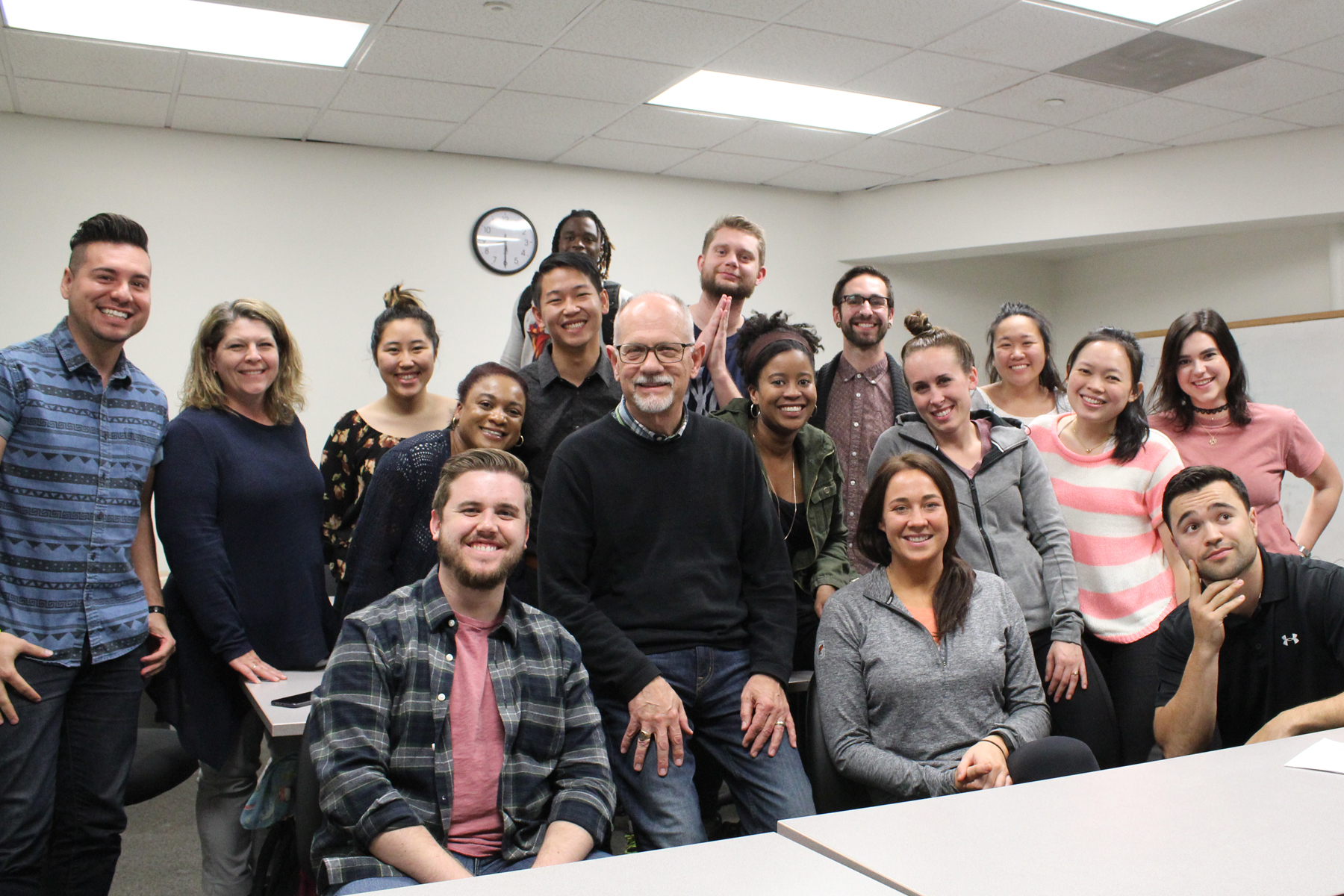Inspiring Developer

INSPIRING DEVELOPER
Inspiring developers are leaders who have a resilient commitment to the challenges of deep change, effective development through inspiring learning environments, and transformational mentorship.
Due to many challenges in the workplace, there is a call for leaders to be inspiring developers committed to coming alongside others as effective coaches who empower others to become their full potential. According to Gallup’s “State of the American Workplace” (2017) report, “three in ten U.S. employees strongly agree that there is someone at work who encourages their development” and that lack of development is the No. 1 reason employees leave their job (p. 110). Therefore, inspiring development is typically an unwritten set of expectations that workers anticipate. Coaching is one-way managers could become inspiring developers who increase value, development, and productivity.
Becoming a mentor and being a mentor is at the center of inspiring development and is often empowered by dynamic alliances, integrated praxis, and meaningful learning experiences and environments. At every level, inspiring developers provide performance feedback, coaching, and career development for people and leaders to maximize their growth and success. Understanding crucibles often lead to reconceptualized mistakes as learning experiences by focusing on solutions rather than conflicts, building consensus that leads to the appreciation of diverse perspectives, and transformation through interventional strategies. Effectively developing people and ideas in authentic and appropriate ways through inspiring learning experiences and environments is the mark of an inspiring developer.
Living in the Connective Era calls upon ordinary people to be developed into world-changing leaders who develop their three sets of achieving styles: direct (intrinsic, competitive, and power), relational (collaborative, contributory, and vicarious), and instrumental (personal, social, and entrusting) to accomplish goals (Lipman-Blumen, 1996). Expressed through these achieving styles, leaders who live out their True North are able to align others around a shared purpose or vision by empowering others to lead authentically (Craig, George, & Snook, 2015). As a leader, my mission statement is to be an inspiring developer who believes in people and invites them into a better story. While my True North guides me to encourage, empower, equip, and ekballo (send) laborers into various spheres of society both locally and globally.
Transformative servant leaders have the potential to change the world and leave a legacy worthy of the Gospel that will make a generational impact through mentorship and discipleship. As a result, there has been a shift from a transactional leader-follower paradigm to a transformational leadership-followership paradigm where followers carry purpose, beliefs, and desire for organizational success with their leaders (Riggio et al., 2008). By utilizing Craig, George, & Snook’s fieldbook, The Discover Your True North Fieldbook: A Personal Guide to Finding Your Authentic Leadership, leadership development and mentorship will consist of developing a personal development plan that will consist of intellectual development, personal discipline, stress management, values, leadership principles, ethical boundaries, spirituality, building relationships, holistic integration, leadership styles, development, legacy, and future directions. In the process of mentoring, there are three steps in the observation process: gaining self-awareness, understanding the mentee’s journey, and gaining perspective, and the seven critical elements of the learning-centered mentoring paradigm: reciprocity, learning, relationship, partnership, collaboration, mutually defined goals, and development (Zachary, 2012). Developing leaders through a posture of servant leadership accompanied by followership curates a dynamic learning environment for inspiring mentorship and development.
In such dynamic learning environments, knowledge is power, and there are two primary sources of knowledge: curiosity (knowledge as an end in itself) and control (knowledge as a means to practical ends), which both drive learning and ownership (Palmer, 1983). Through “knowledge arising from love is the reunification and reconstruction of broken selves and worlds” and not by manipulation but reconciling the world as members of the community (Palmer, 1983, p. 8). To learn is to live, and by receiving knowledge, there is an opportunity to apply what has been learned, “it’s impossible to understand teaching without learning, and both without knowing” (Horton & Friere, 1990, p. 57). Transformation of self occurs only when God and self are deeply known, and without deeply knowing God, there is no deep knowing of self (Benner, 2004). Choosing to focus on God without knowing ourselves creates “a gap between appearance and reality” that is dangerous and disastrous in life and leadership (Benner, 2004, p. 22). Ultimately, the fear of change can cause leaders to become stagnate, but learning and processing can energize them like a generator coming back to life (Quinn, 1996). Competence and confidence develop over time and are established “by retelling the important stories in our life from the perspective of our current situation, telling them in unique ways that reconnect our past foundation with our present and future realities” (Quinn, 1996, p. 67). Deep change empowers leaders in four capacities: personal awareness, communal effects, leadership capacity, and relentless persistence resulting in local and global impact. Ultimately, inspiring developers are leaders who have a resilient commitment to the challenges of deep change, effective development through inspiring learning environments, and transformational mentorship.

Over the years, I have always found myself naturally being an inspiring developer as an educator, coach, and even an admissions counselor. In any context, there is a desperate need and expectation for ongoing learning and development throughout organizations. Therefore, creating a space for transformation is the beginning of that development. Through the class, Leaders in a Learning Environment (LDRS 571), I developed a robust Philosophy of Adult Leadership Education that captures the essence of ongoing transformational development. Education is made up of a dance between teaching and learning with educators and learners where there is exceptional presentation and design. A student-centered approach to education inspires student achievement through rigorous curriculum, relevant academia, and relational pedagogy (Isozaki, 2013). My role as an educator is to create a space for transformation where motivation inspires learning that makes a difference and empowers people to step into their full potential. Ultimately, learners are transformed by love to recall and recreate the world around them.
However, education takes many forms, and leadership development has proven to take leaders further faster as they are committed to incremental steps towards greatness. Considering that the organizationally inspiring development is lacking, in the class, Understanding Vocation and Calling (LDRS 520), I had the opportunity to be a professional external consultant for Amazon to assess their organization’s career development and offer a proposal to the CEO on how to increase their effectiveness. With innovation and self-discovery as core values at Amazon, three new accessible career development tracks: True North Online Program (personal discovery of purpose, values, and mission), Standout 2.0 in Groups (understanding their greatest contribution at work and how to take advantage of their strengths), and the Real Best Self Evaluation as a Team (review your real best self by referencing past experiences to build upon and implement in the workplace). All three of these implementations will provide various inspiring development opportunities and have encouraged me to explore the field of consulting and coaching in the future.
Throughout the Masters in Leadership program, I have regularly reflected on continuing my growth as an inspiring developer, specifically as a coach. Especially after meeting a Gallup Coach at a conference, I received a significant discount to become a Gallup Certified Strengths Coach, and since then, I have become passionate about how this growing field has the potential to shape the future of organizational culture in the workplace. Becoming an inspiring developer starts with understanding the art of coaching, implementing the articulation of coaching approaches, and building an arsenal of coaching tools. In addition, coaches regularly help others channel their passion for learning into great opportunities through a process of equipping them with developmental tools, knowledge, and opportunities (Peterson & Hicks, 1996). Looking ahead, my goal is to be a lifelong learner by immediately starting to read and apply at least one Gallup Strengths book every month in 2019. By gaining that knowledge, I plan on developing a reproducible cross-disciplinary Gallup Strengths Coaching and Leadership Development Program internally within UG Admissions to increase motivation and determination to effectively meet enrollment goals by August 2019. Finally, at the start of 2019, launch Isozaki Coaching Company, a platform for leadership development through articles and Gallup Strengths Coaching. As I set forth in my pursuit to believe in people and invite them into a better story, I am excited to learn more about Gallup Strengths and launch Isozaki Coaching Company, which will consist of providing and developing reproducible cross-disciplinary coaching and leadership development as an inspiring developer.
References
Benner, D. G. (2004). The gift of being yourself: The sacred call to self-discovery. (Kindle Edition). Retrieved from Amazon.com.
Craig, N., George, B., & Snook, S. (2015). The discover your true north fieldbook: A personal guide to finding your authentic leadership (Second ed.). Hoboken, New Jersey: John Wiley & Sons, Inc.
Horton, M., & Freire, P. (1990). We make the road by walking: Conversations on education and social change. Temple University Press.
Isozaki, C. (2013). Education the beacon of the future. Unpublished manuscript, Azusa Pacific University.
Lipman-Blumen, J. (1996). Connective leadership: Managing in a changing world. New York: Oxford University Press.
Palmer, P. J. (1983). To know as we are known: Education as a spiritual journey. HarperOne.
Peterson, D. B., & Hicks, M. D. (1996). The leader as coach: Strategies for coaching and developing others. Minneapolis, MN: Personnel Decisions.
Riggio, R. E., Chaleff, I., & Lipman-Blumen, J. (2008). The art of follwership: How great followers create great leaders and organizations. San Francisco, CA: Jossey-Bass.
State of the American workplace. (2017). Gallup Inc. Retrieved from https://www.gallup.com/workplace/238085/state-american-workplace-report-2017.aspx
Quinn, R. E. (1996). Deep change: Discovering the leader within. San Francisco, CA: Jossey-Bass.
Zachary, L. J. (2012). The mentor’s guide: Facilitating effective learning relationships (Second ed.). San Francisco, CA: Jossey-Bass.